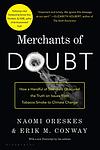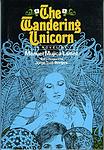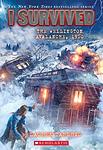The Greatest Bulgarian, Argentinian "Fiction" Books Since 1950
Click to learn how this list is calculated.
This list represents a comprehensive and trusted collection of the greatest books. Developed through a specialized algorithm, it brings together 300 'best of' book lists to form a definitive guide to the world's most acclaimed books. For those interested in how these books are chosen, additional details can be found on the rankings page.
Genres
Countries
Date Range
Reading Statistics
Click the button below to see how many of these books you've read!
Download
If you're interested in downloading this list as a CSV file for use in a spreadsheet application, you can easily do so by clicking the button below. Please note that to ensure a manageable file size and faster download, the CSV will include details for only the first 500 books.
Download-
1. Labyrinths by Jorge Luis Borges
"Labyrinths" is a collection of short stories and essays that explore complex themes of infinity, parallel universes, and the blurred lines between reality and illusion. The narratives often feature protagonists who are scholars or librarians, trapped in surreal, metaphysical landscapes. The author's unique writing style combines elements of magical realism, philosophy, and detective fiction, creating an intricate web of narratives that challenge the reader's perception of reality and fiction.
-
2. Hopscotch by Julio Cortázar
This avant-garde novel invites readers into a non-linear narrative that can be read in two different orders, following the life of Horacio Oliveira, an Argentine intellectual living in Paris with his lover, La Maga. The story explores philosophical and metaphysical themes, delving into the nature of reality and the human condition, while also examining the struggles of intellectual and emotional life. The second part of the novel takes place in Buenos Aires, where Horacio returns after La Maga disappears, and where he grapples with his past, his identity, and his place in the world.
-
3. A Ballad for Georg Henig by Viktor Paskov
"A Ballad for Georg Henig" is a narrative that explores the life of a Jewish craftsman and violin maker, Georg Henig, in the 18th century. The story is set in Bulgaria and delves into the historical events and cultural dynamics of the time, including the Ottoman rule and the social status of Jews. The protagonist's life is filled with love, loss, and the quest for artistic perfection, all against the backdrop of a society marked by religious and ethnic tensions.
-
4. Kiss of the Spider Woman by Manuel Puig
"Kiss of the Spider Woman" is a novel set in an Argentine prison where two cellmates, a gay window dresser and a political revolutionary, share stories to pass the time. The window dresser recounts various films he's seen, which often involve strong, glamorous women, while the revolutionary shares his political ideologies. As they spend time together, they form an unlikely bond, exploring themes of sexuality, oppression, and the power of storytelling.
-
5. Betrayed by Rita Hayworth by Manuel Puig
The novel explores the life of a young boy growing up in a small town in Argentina during the 1930s and 1940s. It is a coming-of-age story that uses a unique narrative structure, incorporating a mix of dialogues, inner thoughts, and film scripts to depict the protagonist's life. The boy's obsession with Hollywood films and glamorous actresses, particularly Rita Hayworth, serves as an escape from his oppressive environment and shapes his understanding of the world. The book also delves into themes of sexuality, identity, and the impact of popular culture.
-
6. Heartbreak Tango by Manuel Puig
"Heartbreak Tango" is a tragicomedy that explores the intertwined lives of the inhabitants of a small town in Argentina. The narrative revolves around the life and death of a charismatic but flawed young man, Juan Carlos, who has relationships with multiple women, each of whom remember him differently. The story is told through a series of letters, diary entries, police reports, and gossip, presenting a multifaceted view of Juan Carlos and the impact he had on those around him. The novel also critiques the shallowness and hypocrisy of society, particularly in its treatment of women.
-
7. Dreamtigers by Jorge Luis Borges
"Dreamtigers" is a collection of short stories, essays, and poems that delve into the realm of metaphysics, infinity, mirrors, and changing identities. The book explores the author's fascination with the dream world and the blurred boundaries between reality and imagination. The narrative is filled with complex themes, paradoxes, and illusions, often inspired by the author's own experiences and his love for literature and philosophy.
-
8. Natural Novel by Georgi Gospodinov
"Natural Novel" is a thought-provoking and imaginative work that seamlessly weaves together various narratives and perspectives. The book explores the concept of storytelling and its power to shape our understanding of reality. Through a blend of fiction, memoir, and philosophical musings, the author delves into the complexities of human existence, the interconnectedness of life, and the search for meaning in a world filled with both beauty and tragedy. With its poetic prose and profound insights, "Natural Novel" invites readers to contemplate the boundaries between truth and fiction, ultimately challenging conventional notions of storytelling.
-
9. The Witness by Juan José Saer
"The Witness" is a novel that explores the life of a young European boy who is the only survivor of a shipwreck in the 16th century. He is found and raised by a tribe of Indians in South America, where he spends ten years of his life. The boy is eventually found by a band of Spanish conquistadors and returns to Europe, where he becomes a well-respected scholar. The story unfolds as the man, now in his 90s, recounts his experiences and struggles to reconcile his European identity with his decade-long immersion in the tribal culture.
-
10. Time Of Parting by Anton Donchev
The novel is a historical drama set in the 17th century in the Rhodope Mountains, exploring the cultural and religious conflict between the Christian Bulgarians and the Ottoman Empire. It follows the story of a Bulgarian village facing the threat of Islamization, as the Ottoman authorities impose a conversion campaign. The narrative delves into the choices and struggles of the villagers, particularly the character of the village leader, who must navigate between resistance and survival. The book examines themes of identity, faith, and the complexities of coexistence during a time of oppressive rule and societal upheaval.
-
11. Tobacco by Dimitar Dimov
The book in question is a historical novel set in the early 20th century, exploring the lives of characters involved in the tobacco industry in Bulgaria. It delves into the personal and political turmoil of the time, focusing on the struggles of the working class and the manipulations of the wealthy elite. The narrative intertwines love, betrayal, and ambition, as it portrays the harsh realities of labor exploitation and the social upheavals leading up to World War II. Through its vivid characters and rich descriptions, the novel offers a critical look at the impact of capitalism and the quest for power on individuals and society.
-
12. The Iron Candlestick by Dimitar Talev
The book is a historical novel set in the early 20th century, focusing on the struggles of the Bulgarian people under Ottoman rule. It follows the life of a young Bulgarian boy from his childhood to his involvement in the national liberation movement. The narrative weaves personal and political threads, depicting the boy's growth amidst the backdrop of cultural oppression, resistance, and the quest for national identity. The story is a poignant exploration of the human spirit and the fight for freedom, showcasing the resilience of a community striving to preserve its heritage and autonomy against the odds.
-
13. The Bells Of Prespa by Dimitar Talev
The novel is a historical saga set in the early 20th century, focusing on the lives and struggles of the Macedonian people under Ottoman rule. It weaves a rich tapestry of characters, both fictional and real, as they navigate the complexities of national identity, cultural heritage, and political upheaval. The narrative delves into the personal and collective challenges faced by the inhabitants of the Prespa region, highlighting their resilience and the impact of historical events on their daily lives. Through the symbolic resonance of the bells, the story captures the essence of a community's enduring spirit amidst the tides of change and the quest for freedom and self-determination.
-
14. Нощем с белите коне by Pavel Vezhinov
The book is a poignant exploration of human emotions and the complexities of life during a difficult historical period. It follows the journey of a man who, amidst the turmoil of war, finds solace and a sense of purpose in caring for a group of white horses. These majestic creatures become a symbol of purity and hope in a world overshadowed by conflict and despair. As the protagonist navigates the challenges of survival and the moral dilemmas posed by the war, the narrative delves into themes of love, sacrifice, and the enduring strength of the human spirit.
-
15. Ilinden by Dimitar Talev
The novel is a historical narrative set in the early 20th century, focusing on the struggles of the Macedonian people under Ottoman rule. It vividly portrays the events leading up to the Ilinden Uprising, a pivotal moment in the fight for Macedonian independence. Through the lives of its characters, the book explores themes of national identity, resistance, and the human cost of revolution. The narrative weaves personal stories with the broader socio-political context, offering a poignant look at the aspirations and sacrifices of a people yearning for freedom.
-
16. Гласовете ви чувам by Dimitar Talev
The book is a poignant exploration of the human condition, set against the backdrop of a small town in Bulgaria during the early 20th century. It delves into the lives of several characters, each struggling with their own personal dilemmas and the oppressive political climate of the time. Through a series of interconnected stories, the narrative examines themes of love, betrayal, and the quest for freedom, all while capturing the cultural and social nuances of Bulgarian society. The characters' innermost thoughts and feelings are brought to the forefront, revealing the universal longing for understanding and the need to be heard amidst the tumultuous changes of the era.
-
17. Самуил by Dimitar Talev
The book is a historical novel that delves into the life and times of a legendary ruler in the early 11th century, focusing on the struggles and resilience of his people against the Byzantine Empire. It portrays the ruler's efforts to maintain the independence and integrity of his kingdom amidst political intrigue, warfare, and cultural challenges. The narrative weaves a rich tapestry of medieval Balkan history, highlighting the ruler's leadership, the valor of his warriors, and the tragic fate that befalls them as they confront the overwhelming forces of a powerful adversary. Through its vivid depiction of historical events and characters, the novel explores themes of patriotism, sacrifice, and the enduring human spirit.
-
18. All Fires The Fire by Julio Cortázar
"All Fires The Fire" is a collection of short stories that explores the complexities of human relationships and the blurred lines between reality and imagination. Through vivid and imaginative storytelling, the author delves into themes of love, desire, and the search for meaning in a world filled with uncertainty. Each story presents a unique and thought-provoking narrative, inviting readers to question the boundaries of their own perceptions and the nature of existence itself.
-
19. The Censors by Luisa Valenzuela
"The Censors" is a satirical short story that delves into the life of a man who takes a job as a censor at a government agency in an attempt to intercept and approve his own letter, which he had previously sent abroad. As he becomes increasingly absorbed in his role, he starts to censor letters with zeal, losing sight of his original purpose. The story serves as a cautionary tale about the corrupting influence of power and the ease with which one can become complicit in oppressive systems, ultimately leading to a grim and ironic conclusion where the protagonist falls victim to the very system he sought to manipulate.
-
20. The Wandering Unicorn by Manuel Mujica Lainez
"The Wandering Unicorn" is a historical fantasy novel that weaves a tapestry of medieval legends, chivalric adventures, and magical realism. It follows the journey of a young unicorn who, under the guise of a beautiful page, seeks to protect Melusine, a cursed fairy who is half-woman, half-serpent. Set against the backdrop of the Crusades, the narrative intertwines the unicorn's quest for redemption and love with a rich cast of characters, including knights, sorcerers, and mythical creatures. The story delves into themes of immortality, transformation, and the enduring power of myth, all while painting a vivid picture of a bygone era filled with enchantment and intrigue.
-
21. Avalanche by Blaga Dimitrova
The novel explores the psychological and emotional landscapes of its characters against the backdrop of a natural disaster. It delves into the lives of a group of people trapped in a mountain hotel by an avalanche, examining their personal stories, relationships, and the societal structures that define them. As they confront the possibility of death and the breakdown of social order, the characters are forced to reevaluate their lives, revealing the complex interplay of human nature and the forces beyond our control. The narrative weaves together themes of love, betrayal, and the quest for meaning, all while questioning the very essence of existence and human connection amidst the chaos of the avalanche.
-
22. Солунският чудотворец by Fani Popova-Mutafova
The book is a historical novel set in the early 20th century, revolving around the life of a revered monk known for his miraculous healing powers in the city of Thessaloniki. The narrative delves into the complexities of the Balkan Wars and the socio-political turmoil of the era, as seen through the eyes of various characters whose lives intersect with the monk's. As they seek solace and miracles, the story explores themes of faith, hope, and the human struggle, painting a vivid picture of the period's cultural and historical landscape.
-
23. Santa Evita by Tomás Eloy Martínez
"Santa Evita" is a fictionalized account of the life and death of Eva Peron, the beloved First Lady of Argentina. The book delves into the mysterious journey of her embalmed corpse which was moved around the world and hidden for 16 years after her death. The narrative, interwoven with historical facts, explores the cult-like fascination and devotion that surrounded her during her life and continues after her death.
-
24. Wolf Hunt by Ivaylo Petrov
"Wolf Hunt" is a historical novel set in the early 20th century in a rural Bulgarian village, where the lives of peasants are depicted with stark realism. The narrative revolves around a group of villagers who are tasked with hunting down a wolf that has been terrorizing their livestock. As the hunt progresses, the story delves into the complex relationships and social dynamics within the community, revealing the struggles, hardships, and resilience of the human spirit in the face of poverty, oppression, and the changing tides of history. The novel serves as a metaphor for the political and social upheavals of the time, exploring themes of survival, morality, and the human condition.
-
25. The Impenetrable Madam X by Griselda Gambaro
"The Impenetrable Madam X" is a provocative play that delves into the complexities of human relationships and societal expectations. Set against a backdrop of surrealism and absurdity, the narrative follows the titular character, a woman shrouded in mystery and power, who interacts with various other characters in a series of disjointed scenes. Through sharp dialogue and symbolic interactions, the play explores themes of identity, power dynamics, and the struggle for understanding within the confines of a world that oscillates between the real and the fantastical. The work challenges audiences to question the nature of reality and the masks people wear in their daily lives.
Reading Statistics
Click the button below to see how many of these books you've read!
Download
If you're interested in downloading this list as a CSV file for use in a spreadsheet application, you can easily do so by clicking the button below. Please note that to ensure a manageable file size and faster download, the CSV will include details for only the first 500 books.
Download












